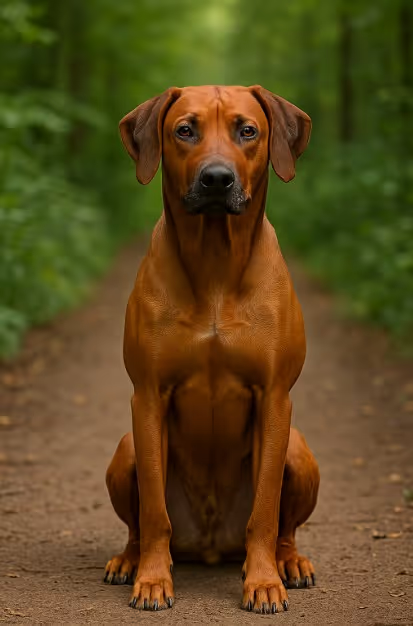The Rhodesian Ridgeback is a powerful, dignified, and loyal hunting dog known for the distinctive ridge of hair running along its back. Originally bred in southern Africa to track and hold lions at bay, this athletic breed combines strength, endurance, and a calm, devoted temperament. Ridgebacks thrive in active homes where they receive firm yet loving guidance, daily exercise, and plenty of companionship.

The Rhodesian Ridgeback originated in southern Africa in the late 19th century when European settlers crossed native ridged hunting dogs with breeds such as the Greyhound, Mastiff, and various scent hounds. The result was a versatile dog capable of tracking large game, guarding property, and withstanding the harsh African climate. The breed’s signature “ridge” is formed by hair growing in the opposite direction along the spine. Recognized by the South African Kennel Union in 1927 and the American Kennel Club in 1955, the Ridgeback is now valued as both a guardian and family companion.
A muscular, athletic dog with a distinctive ridge of hair along the back.
Low-maintenance grooming with minimal shedding.
High-energy breed requiring daily vigorous activity.
ntelligent and independent, needing consistent training.
Balanced diet to support their active, muscular build.
Generally healthy but may be prone to some breed-specific issues.
Available through reputable breeders and breed-specific rescues.
Are Rhodesian Ridgebacks good family dogs?
Yes, they are loyal and protective but need proper training and socialization.
Do they bark a lot?
No, they are generally quiet watchdogs.
Do they shed much?
Low to moderate year-round.
Are they easy to train?
Yes, with consistency and positive reinforcement.
Do they get along with other pets?
Yes, if socialized early, but they may have a strong prey drive.
Are they hypoallergenic?
No.
How much exercise do they need?
At least 60–90 minutes daily.